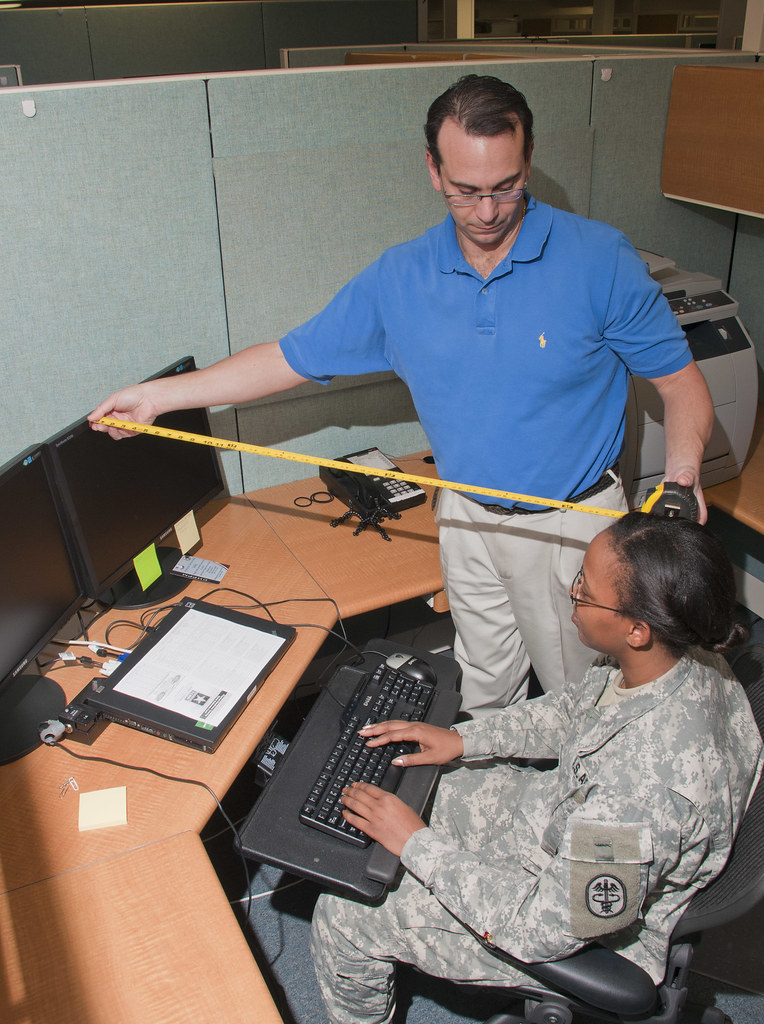Learn why leading HR professionals trust ekincare! Explore Now

In today's fast-paced and competitive business world, success is not solely determined by financial gains or market dominance. It is also defined by the well-being, safety, and productivity of your most valuable asset - your employees.
Ensuring the health and safety of your workforce isn't just a legal requirement; it's a strategic investment that can elevate your organization to new heights. In this comprehensive guide, we will explore the critical role played by Occupational Health Centers (OHCs) in shaping the future of workplace well-being and safety.
Demystifying OHCs
OHC, or Occupational Health Center is a hub of healthcare services, typically a clinic managed by nurses and a doctor, located on the premises of the corporation. OHC staff focus specifically on workplace health and safety, address occupational hazards, and promote overall well-being among employees.
The Significance of OHC in Medical and Healthcare Technology
In today's era of advanced medical instruments and cutting-edge healthcare technology, OHCs have evolved to become an essential component of the healthcare ecosystem. Let's take a closer look at their role in shaping success.
Occupational Health Services: OHCs offer a wide range of occupational health services, which go beyond typical medical care. For example, if you work in an environment where exposure to certain chemicals is common, OHCs can provide regular health check-ups to monitor any potential health risks associated with these chemicals. This proactive approach helps in the early detection and prevention of work-related health issues, ultimately contributing to an individual's long-term success by maintaining their health and well-being.

Healthcare Facilities: Modern OHCs are equipped with medical instruments and medicines, and an ambulance is stationed at the location. This means that employees can receive comprehensive medical care without having to visit multiple healthcare providers. This convenience saves employees time and ensures quick access to medical care when needed, which is crucial for maintaining their health and productivity.
Workplace Health and Safety: One of the primary roles of OHCs is to evaluate and improve workplace health and safety. They conduct thorough assessments to identify potential hazards, such as poorly designed workstations, inadequate ventilation, risk of falls, unusually high noise levels, improperly positioned equipment or outdated safety protocols. By addressing these issues and providing recommendations for improvements, OHCs contribute significantly to reducing workplace accidents and injuries. A factory medical officer trained in AFIH (Associate Fellow of Industrial Health) can guide a corporation on safety issues, statutory compliance, and help with audits. This, in turn, leads to a safer and more conducive work environment, promoting the success of the organization by preventing costly disruptions and legal issues.
Employee Wellness Programs: OHCs often collaborate with organizations to implement employee wellness programs. These programs are designed to promote healthy lifestyles, manage workplace stress, and support mental health. Healthy employees are not only more productive but also more engaged and motivated. Employee wellness programs foster a culture of well-being within the workplace, which is a critical factor in achieving both individual and organizational success. When employees feel cared for and supported in their well-being, they are more likely to perform at their best and contribute positively to the company's success.

Cost Savings: It's worth highlighting the long-term cost-saving benefits of OHCs. By preventing workplace accidents and managing health risks, organizations can avoid significant medical expenses and costs associated with employee absenteeism. OHCs contribute to maintaining a stable and healthy workforce, which is essential for an organization's financial success. These cost savings can be redirected towards other essential aspects of the business, further promoting its growth and success.
Compliance with Regulations: In many industries, compliance with health and safety regulations is not just a matter of ethical responsibility; it's a legal requirement. OHCs ensure that organizations adhere to these regulations, reducing the risk of legal issues, fines, and damage to the company's reputation. Compliance with regulations is not only about avoiding penalties but also about creating a safe and ethical work environment, which is a fundamental element of long-term success.
Services Offered by Occupational Health Centers
1) Health Check-ups and Medical Examinations:
Offers routine health check-ups and medical examinations for employees. These assessments help detect any health issues and monitor overall well-being.
2) Vaccinations and Immunizations:
Administers vaccinations and immunizations to protect employees from diseases or infections they may encounter in their work environments.

3) Health Risk Assessments:
Conducts comprehensive health risk assessments to identify potential health risks associated with specific job roles or workplace conditions. They provide recommendations for risk mitigation.
4) Work-related Injury and Illness Management:
Provides care and treatment for injuries and illnesses that occur in the workplace, facilitating recovery and ensuring employees can safely return to work.
5) Health Promotion and Wellness Programs:
Collaborates with organizations to implement wellness programs that focus on healthy lifestyles, stress management, and mental health support for employees.
6) Ergonomic Assessments:
Evaluates the design of workspaces and equipment to ensure they minimize physical strain and discomfort, preventing musculoskeletal disorders.

7) Hearing and Vision Tests:
Conducts hearing and vision tests for employees exposed to noise and visual hazards, helping identify early signs of impairment and maintaining workplace safety.
8) Fitness for Duty Examinations:
Assesses employees' fitness for specific job roles, particularly in safety-sensitive positions, to ensure they are physically and mentally capable of performing their duties safely.
9) Health Education and Counseling:
Provides health education and counselling services to employees, offering guidance on managing chronic conditions, adopting healthy habits, and coping with workplace-related stress.
10) Drug and Alcohol Testing:
In safety-critical industries, OHCs may conduct drug and alcohol testing to maintain a sober and safe work environment.
11) Occupational Health and Safety Training:
Offers training programs to educate employees and management about workplace health and safety regulations, fostering compliance and a culture of safety.

12) Health Surveillance and Record Keeping:
Maintains health surveillance records for employees, documenting their medical history and any workplace-related health issues. These records are essential for tracking trends and compliance.
13) Guidance during pandemics:
During the COVID-19 pandemic, OHCs served as hubs for medical information, dispensing updates regarding policies, vaccination plans, provision of Oxygen cylinders, back-to-home testing etc. besides being the walk-in clinic.
Transforming Absences into Achievements
The impact of OHCs on individuals and organizations is profound. Let's explore how these centers help transform employee absences into remarkable achievements.
1. Reduced Absenteeism
When employees receive regular health check-ups and have access to healthcare services through OHCs, they are less likely to miss work due to illness. This reduction in absenteeism ensures that organizations maintain their productivity levels and meet their targets consistently.
2. Increased Productivity
Healthy employees are more productive. OHCs contribute to increased productivity by addressing health issues promptly, providing preventive care, and fostering a culture of well-being within the workplace.

3. Enhanced Employee Morale
Knowing that their employer cares about their health and well-being boosts employee morale. This positive sentiment translates into increased job satisfaction and a greater commitment to the organization's goals.
Conclusion: A Healthy Path to Success
In conclusion, Occupational Health Centers (OHCs) play a pivotal role in safeguarding the health and well-being of employees across various industries. They offer a diverse range of services tailored to address industry-specific risks and emerging trends. Measuring their impact involves assessing the reduction in workplace injuries and illnesses, surveying employee satisfaction, monitoring productivity metrics, analyzing workers' compensation claims, and tracking participation in health promotion programs. Challenges, including workforce diversity, technological advancements, mental health stigma, global health issues, and regulatory changes, shape the future direction of OHCs. Adaptability, innovation, and a commitment to employee health and safety are key to the continued success of Occupational Health Centers in fostering healthier and safer work environments.
Discover the transformative power of ekincare's OHC services, a beacon of health and well-being in a fast-paced world. With ekincare, your journey towards optimal health becomes effortless. Our comprehensive platform offers personalized health assessments, seamless access to medical records, and expert guidance, ensuring your wellness, is a priority. We empower you with data-driven insights, real-time support, and a user-friendly interface that simplifies healthcare management. Choose ekincare and embark on a path to a healthier, happier you.
Your well-being is our mission.
Learn how your organisation can get the best employee health and well-being experience with ekincare`s commitment to quality.